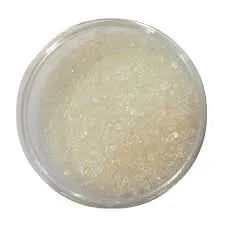The Role of Additives in Plastic Recycling
Plastic pollution has emerged as one of the most pressing environmental challenges of our time. With millions of tons of plastic waste generated annually, the need for efficient recycling methods has never been greater. While recycling technologies have improved, the incorporation of additives into the recycling process has become a pivotal focus in enhancing the quality, efficiency, and sustainability of recycled plastics. This article explores the significance of plastic recycling additives and their role in the future of sustainable material management.
Understanding Plastic Recycling Additives
Additives are substances added to plastics during both manufacturing and recycling processes to modify their properties. These can include stabilizers, lubricants, colorants, and plasticizers, among others. In the context of recycling, additives can serve several purposes, such as improving the mechanical properties of recycled plastics, enhancing their thermal stability, and facilitating processing.
Enhancing Properties of Recycled Plastics
One of the primary challenges of recycling plastics is that reprocessing often leads to degradation of the material's properties. Additives can mitigate this issue by reinforcing the structural integrity of recycled plastics. For instance, fillers can be added to enhance stiffness and strength, making recycled polymers more suitable for various applications. Similarly, stabilizers can help preserve color and prevent degradation caused by exposure to heat and UV light during processing.
In addition to improving mechanical properties, additives can also aid in making plastics more amenable to recycling. By enhancing flowability during manufacturing, lubricants can reduce energy consumption and improve the efficiency of the recycling process. This not only contributes to economic savings but also lessens the environmental footprint of plastic recycling operations.
plastic recycling additives

Facilitating Compatibilization
A significant challenge in plastic recycling is the presence of different types of plastics, each having unique properties and melting points. This heterogeneity can complicate the recycling process, often leading to inferior quality recycled materials. Compatibilizing agents are a specific type of additive designed to improve the interaction between dissimilar polymers, thus allowing for a more effective recycling process. These agents can lead to better blend quality and ultimately yield higher-value recycled products.
Environmental Impact and Sustainability
The utilization of additives in recycling not only bolsters the performance of recycled plastics but also aligns with the global movement towards sustainability. With consumers becoming increasingly aware of environmental challenges, companies that invest in enhancing the recyclability of their plastic products are more likely to satisfy market demands. This shift not only fosters a circular economy but also decreases reliance on virgin materials and contributes to waste reduction.
Furthermore, biobased additives are gaining traction as alternatives to conventional petroleum-derived substances. These biodegradable materials can enhance the compostability of certain plastics while still providing the necessary performance enhancements. This dual benefit addresses both recycling and end-of-life considerations, moving us closer to a sustainable future.
Conclusion
Incorporating additives into the plastic recycling process represents a significant advancement in managing plastic waste. By enhancing the properties of recycled materials, improving processing efficiency, and facilitating compatibilization, additives play an essential role in transforming how we view and utilize recycled plastics. As technology progresses and regulatory frameworks evolve, the strategic integration of additives will likely become a key component of sustainable plastic management systems. Through responsible innovation, we can take meaningful steps toward reducing plastic pollution and promoting a more sustainable cycle of plastic use.

